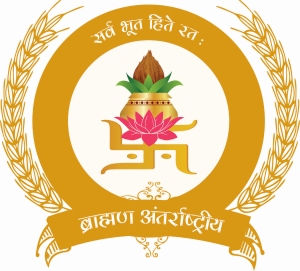Expectations, Roles and Duties of Brahman
The Dharmasutras and Dharmasatras text of Hinduism describe the expectations, duties and role of Brahmins. The rules and duties in these Dharma texts of Hinduism, are primarily directed at Brahmins. The Gautama’s Dharmasutra, the oldest of surviving Hindu Dharmasutras, for example, states in verse 9.54–9.55 that a Brahmin should not participate or perform a ritual unless he is invited to do so, but he may attend. Gautama outlines the following rules of conduct for a Brahmin, in Chapters 8 and 9:
Virtues more important than rituals
A [Brahmin] man who has performed the forty sacramental rites, but lacks eight virtues does not obtain union with or residence in the same world as Brahman(ब्रम्ह). A man who may have performed just some rites, but possesses these eight virtues, on the other hand, does.
—Gautama Dharmasutra 9.24–9.25
- Be always truthful
- Teach his art only to virtuous men
- Follow rules of ritual purification
- Study Vedas with delight
- Never hurt any living creature
- Be gentle but steadfast
- Have self-control
- Be kind, liberal towards everyone
Chapter 8 of the Dharmasutra, states Olivelle, asserts the functions of a Brahmin to be to learn the Vedas, the secular sciences, the Vedic supplements, the dialogues, the epics and the Puranas; to understand the texts and pattern his conduct according to precepts contained in this texts, to undertake Sanskara (rite of passage) and rituals, and lead a virtuous life.
The text lists eight virtues that a Brahmin must inculcate: compassion, patience, lack of envy, purification, tranquility, auspicious disposition, generosity and lack of greed, and then asserts in verse 9.24–9.25, that it is more important to lead a virtuous life than perform rites and rituals, because virtue leads to achieving liberation (moksha, a life in the world of Brahman).
The later Dharma texts of Hinduism such as Baudhayana Dharmasutra add charity, modesty, refraining from anger and never being arrogant as duties of a Brahmin. The Vasistha Dharmasutra in verse 6.23 lists discipline, austerity, self-control, liberality, truthfulness, purity, Vedic learning, compassion, erudition, intelligence and religious faith as characteristics of a Brahmin. In 13.55, the Vasistha text states that a Brahmin must not accept weapons, poison or liquor as gifts.
The Dharmasastras such as Manusmriti, like Dharmsutras, are codes primarily focussed on how a Brahmin must live his life, and their relationship with a king and warrior class. Manusmriti dedicates 1,034 verses, the largest portion, on laws for and expected virtues of Brahmins.


